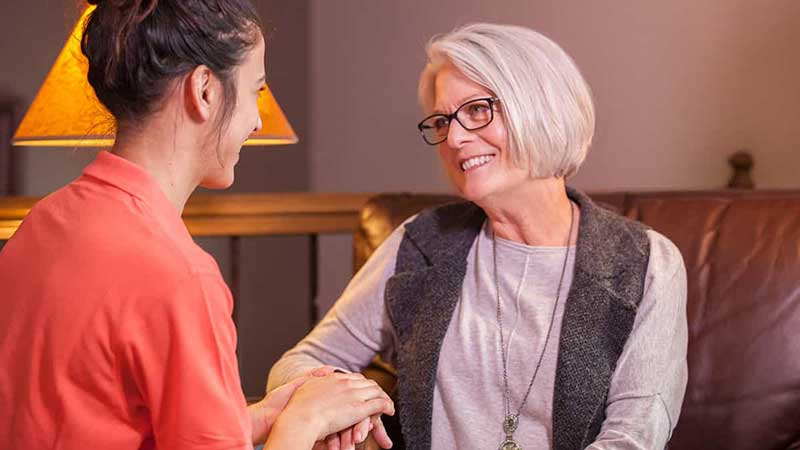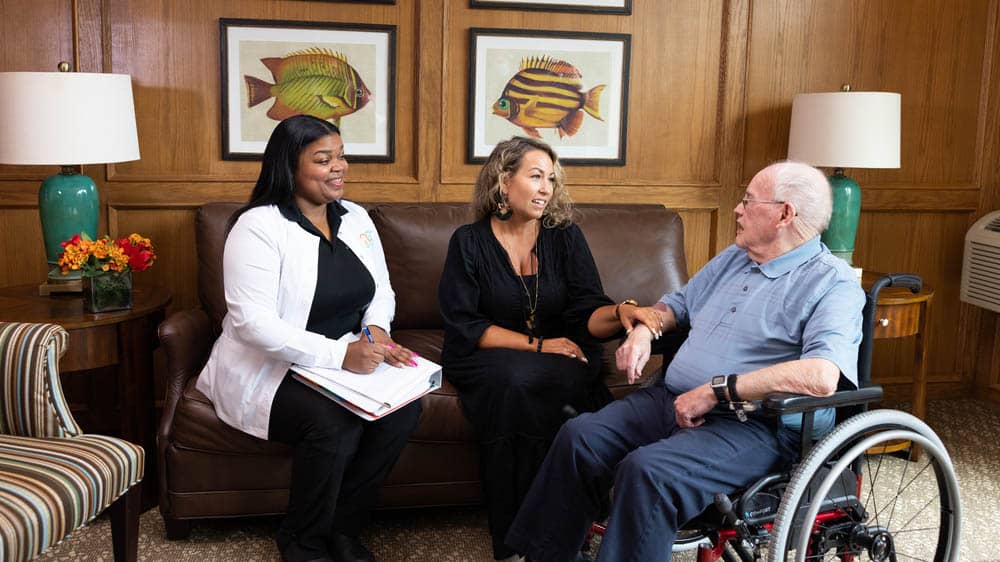

April 16 Is National Healthcare Decisions Day
Every year, National Healthcare Decisions Day is held to raise awareness of the importance of expressing our healthcare wishes, and to encourage healthcare providers and organizations to respect those wishes, whatever they may be.
Advance healthcare planning is the best way to ensure that our preferences will be met in the future. Yes, it’s human nature to avoid thinking about serious illness or the end of life, but putting off these decisions can mean that your family will have to decide for you — a potentially difficult process for them, and they might make choices you would not make.
Here are some FAQs about advance healthcare planning:
Q: Do I really need to express my wishes about what treatment I would and would not want? Isn’t that something for my doctor to decide?
A: Today, a greater-than-ever range of technologies can keep us alive if we are suffering from a serious illness. People have different ideas about the treatments they would want to have. If they are able to state their wishes, they can reply to questions like these:
- Would you want CPR or other resuscitation if your heart were to stop beating?
- Would you want to be put on a ventilator if you could no longer breathe on your own?
- Would you wish to have tube or needle feeding if you lost the ability to swallow?
- If you had a life-limiting illness, would you wish to receive antibiotics that might prolong your life?
- If you had progressive dementia, what health treatments would you want?
- Would you want to be an organ donor?
- At what point would you want palliative care (care that focuses on pain control and quality of life) rather than aggressive treatment?
We like to think that we will always be capable of making these kinds of healthcare decisions. Sometimes, however, it doesn’t work like that. A stroke, an automobile accident, Alzheimer’s disease, or any number of circumstances might limit or take away our ability to choose. Creating advance directives makes it more likely that our wishes would be met, even if we were unable to speak for ourselves.
Q: What are advance directives?
A: These are documents that include statements about:
What you would want. A healthcare directive or living will is a document that says what kinds of care, including the life-sustaining measures mentioned above, you would and would not want if you were nearing the end of your life. In some states, you also can create a document that would make it less likely that first responders would perform CPR or other procedures on you if you don’t want them. This is called a Physician Orders for Life-Sustaining Treatment (POLST) or something similar. Visit the National POLST Paradigm site to find information for your state.
Who you would want to speak for you. A durable power of attorney for healthcare, medical power of attorney or healthcare proxy is a document saying who you would like to make healthcare decisions for you, if a time were to come when you couldn’t speak for yourself. This person would most likely be a relative or close friend. Think about the person you would most trust to make those decisions for you if you weren’t able to do so. That is the person you should appoint as your healthcare representative. Most forms designating a healthcare representative also allow you to name an alternate.
Q: What should I discuss with my healthcare representative?
A: Well ahead of time, ask the person if they are willing to take on that responsibility. If they agree, sit down with them and have a frank, detailed conversation about your feelings and values concerning healthcare and the kinds of treatment you would and would not want. Along with this conversation, be sure to give your healthcare representative copies of your healthcare directives.
Q: Do we really have to talk about the particulars? Couldn’t I just trust my healthcare representative to decide?
A: Here’s some research that might convince you otherwise! Yale University experts asked 349 older adults about what treatment they would prefer if they had a serious illness. Then the experts asked the seniors’ health surrogates what they thought the patient would prefer. The experts found that while the surrogates rated themselves as “extremely confident” that they knew their loved one’s wishes, in fact, only 21% of their answers matched up with those of the patient!
So, even though you’ve stated your wishes in writing, talking about your thoughts with your healthcare representative, as well as with other family members, is important. The better understanding those close to you have about your wishes, the more likely it is that you will spend the end of your life in peace and comfort, and that your family will be spared anguishing decisions and conflict during a time when they would rather be focusing on you. It is a loving legacy to leave.
Q: Who should have a copy of my healthcare directive?
A: Give a signed and witnessed copy to your primary physician, your healthcare representative, your hospital, your senior living community, and any other healthcare organization with which you are connected. It’s also a good idea to share the information with all family and close friends. Doctors and hospitals report that family members are sometimes surprised by their loved one’s wishes as stated in a living will. Family members may disagree with the patient’s wishes or among themselves. You can make it easier for everyone by talking openly with your loved ones well ahead of time.
Q: What if I don’t know what I want?
A: Many people hesitate to express their healthcare wishes because they’re just not sure about what they think! They don’t feel qualified to decide. This is another time when having conversations is a big help. Talk to friends and family. Find out about presentations and discussion groups held at your faith community, senior center, local hospice or senior living community. Consult with a counselor, your spiritual advisor or an aging life care professional (geriatric care manager). There are many good books about end-of-life care philosophy, as well.
Q: But what if I create advance directives, and later change my mind?
A: Your right to complete advance directives includes your right to change your mind. In most states, you may cancel an advance directive any time and in any way that clearly shows your intent — for example, by tearing it up, marking it “revoked,” or telling someone you have changed your mind. It’s always a good idea to review your advance directives from time to time to be sure they reflect your current thinking. If you decide to update them, let your representative and doctor know.
Q: Can my doctor talk to me about advance care planning?
A: Yes! As a matter of fact, Medicare now covers advance care planning. Your doctor can counsel you as you make these decisions and discuss your prognosis if you have health problems. It is best to have these conversations well ahead of time. The American Academy of Family Physicians reports stories about “very sick patients who were admitted to the hospital and had end-of-life conversations in the midst of a crisis with unfamiliar doctors.” Said Dr. Nancy Shoenborn, a professor at Johns Hopkins University School of Medicine, “Wouldn't it be better for patients to have these discussions earlier upstream with their regular doctor who knows them better?”
Q: Where can I get these forms?
You can get advance directives forms from your healthcare provider, your attorney, your local Area Agency on Aging, or your state health department. The AARP also offers the forms for each state.
Created for Right at Home by IlluminAge Communications Partners, 2020







